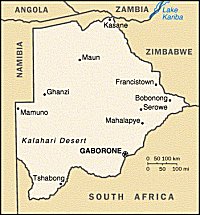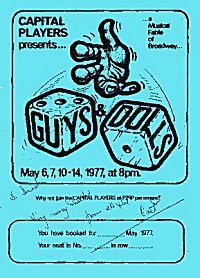Work during those first two years is a blur of fixing Uher tape recorders, recording traditional music, speeches and dancing
at village meetings, recharging flat batteries and occasional visits to the rather dubious "hi-fi" stores in Johannesburg to buy spares for the studios. (That's how they had acquired the ice-cream van
amplifier).
 Travelling to South Africa was an experience in itself. Remember that this
was deep in the apartheid era and it was very unpleasant to cross into a country where such naked prejudice was displayed. Fortunately the Botswana number plates on the car helped a bit, particularly if I spoke
a few words of Setswana when buying petrol, for example.
Travelling to South Africa was an experience in itself. Remember that this
was deep in the apartheid era and it was very unpleasant to cross into a country where such naked prejudice was displayed. Fortunately the Botswana number plates on the car helped a bit, particularly if I spoke
a few words of Setswana when buying petrol, for example.
Incidentally, the first car I acquired was a bit of a mistake. It was an Opel Kadett, which seemed a reasonable purchase as we
approached winter and was the sort of size I considered appropriate. Everyone else (I thought) was being very ostentatious, with enormous air-conditioned gas-guzzlers. We soon
realised our mistake, when it became clear that there were only two Kadetts in the country (so there were no spares) and cooling was actually quite a good thing when the summer temperature reached 43 degrees
Celsius. Then there was the occasion when I had to use a bottle of lemonade to put out the fire in the engine (caused by brake fluid dripping onto the exhaust manifold). . . The car smelt of caramel for weeks
afterwards.
Towards the end of our first 30-month tour of duty and after Botswana celebrated its 10th Anniversary, I was promoted to Chief Engineer when
the man who had recruited me left "in a bit of a hurry". It gave Pru and me the confidence to start a family and our daughter Siān was born during our
first leave back in the UK. I was then to be known as "Rra-go-Siān" (father of Siān) following the custom of acquiring status based on your children.
Ted had returned from college in the UK to become my immediate deputy and we soon realised that we made a great team.
Radio Botswana badly needed to be brought into the 1970's with modern
studios and new equipment. I took the opportunity to visit lots of manufacturers in Europe during my leave in 1977. At that time, there was not a lot of money available for development but if you could justify the
expenditure, you usually got it.
Capital Players And Other Kulture
Although work kept me busy, there was lots going on out of hours, too. Botswana had no TV service and we enjoyed making our own amusements
in the evenings. With a swimming pool only 500m away at the local Gaborone Club, a keen interest in ham radio, and the amateur dramatic society, Capital Players, there was plenty to do.
I did learn to appreciate traditional music, which has lots of leg rattles, one-string violins and tin whistles. One recurring pattern in Botswana traditional music is the use of hand-clapping to the 12-beat rhythm 1-2,
1-2, 1-2-3, 1-2, 1-2-3 (try saying it, emphasising the "1" beat). This is a well-known African rhythm - cross-rhythms can be built up when different clappers offset the start of their sequence by a few beats.
Back in Manchester in 1974 I'd written a musical for a local church group. Hearing this, Gaborone's mostly expatriate dramatic society, Capital
Players, roped me in to write the music for the 1975 Christmas pantomime.  Pru did the costumes. After it, someone
suggested that to help the national fundraising effort for Botswana's University, we should stage the original Manchester work in Gaborone's Trinity Church. It went down a storm, filling the 600-seater church
every night. The musical began with a supposed funeral procession with the audience in almost total darkness; one latecomer took one look at this, exclaimed "That man is TOO dead!" and fled into the night.
Pru did the costumes. After it, someone
suggested that to help the national fundraising effort for Botswana's University, we should stage the original Manchester work in Gaborone's Trinity Church. It went down a storm, filling the 600-seater church
every night. The musical began with a supposed funeral procession with the audience in almost total darkness; one latecomer took one look at this, exclaimed "That man is TOO dead!" and fled into the night.
We invited the then Vice-President of Botswana (Dr. Quett Masire) to the gala night of Crossfire. He loved it. Our involvement with Capital Players snowballed from that point, and even before our first
long vacation Pru and I had helped to put on a string of club nights and a full-length production of "Guys and Dolls" as well.